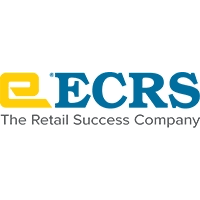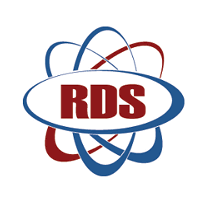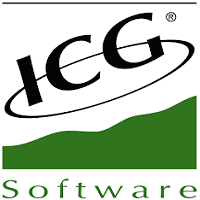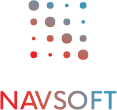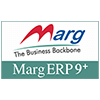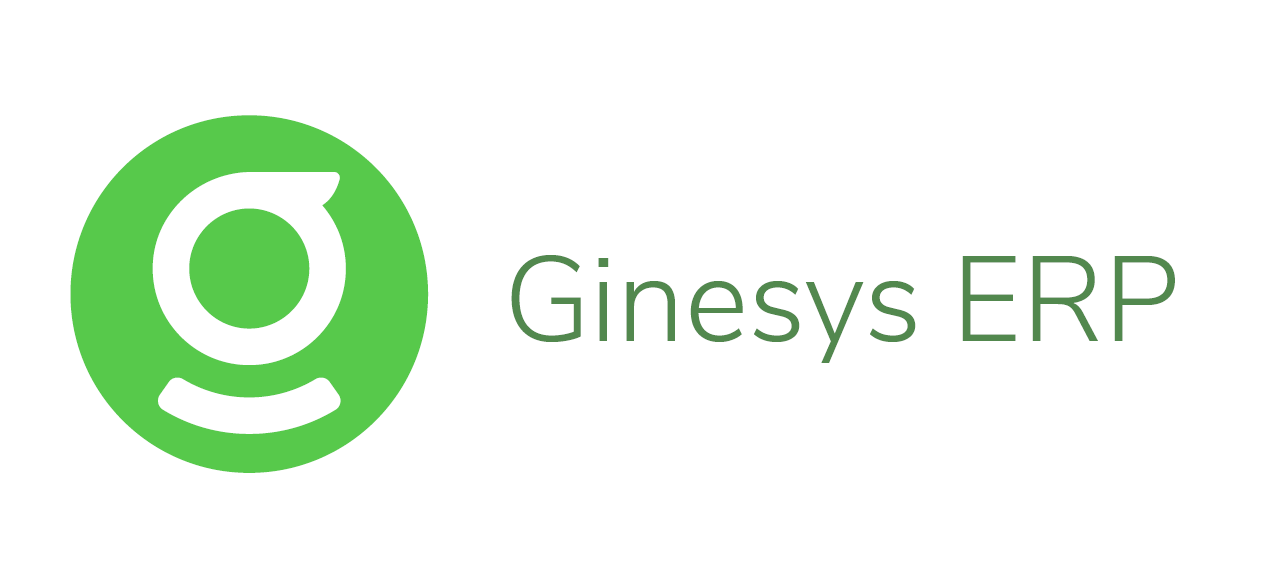What Is Supermarket Software?
Supermarket software is a digital application created exclusively for the food retailing business. It includes a variety of features and functions that simplify operations and increase efficiency for supermarket owners and personnel. This software allows supermarkets to handle inventory, sales, customer information, and other critical parts of their business in a more efficient and organized manner.
One of the primary advantages of employing supermarket software is the ability to automate manual operations like inventory tracking, pricing, and ordering. This not only saves time, but also reduces the likelihood of human error. Accurate inventory tracking allows supermarket managers to better regulate their stock levels and avoid overstocking or understocking products. In addition to inventory management, supermarket software includes sales and customer management tools.
This includes the capacity to manage sales data, evaluate customer purchasing habits, and develop loyalty programs to keep customers. This information can be used to make more educated decisions and enhance the overall purchasing experience for customers. Another key feature of supermarket software is its compatibility with multiple payment methods.
Customers can pay using a variety of options, including credit/debit cards, mobile wallets, and cash, making the checkout process faster and more convenient. This is particularly vital in today's fast-paced environment, where clients anticipate quick and easy transactions. Furthermore, supermarket software provides real-time reporting and analytics capabilities.
This provides supermarket owners with real-time data on sales, inventory, and other variables, enabling them to make data-driven decisions to improve their business operations. When choosing supermarket software, seek for a user-friendly interface, dependable technical support, and customizable capabilities that meet your company's demands. Furthermore, find a software provider that provides regular updates and maintenance to keep your system up to date and functioning properly.
What Are The Recent Trends In Supermarket Software?
In today's fast-paced and extremely competitive industry, supermarket software has become an indispensable tool for retailers looking to simplify their operations and stay ahead of the competition. With technological improvements, this software has grown to provide a diverse set of features and capabilities to meet the unique needs of supermarkets.
Let's explore, we'll go over the latest developments in supermarket software to help you make an informed decision when selecting the finest software for your store.
1. Cloud-Based Solutions: One of the most significant changes in supermarket software is the transition to cloud-based solutions. Supermarket software is no exception to the growing number of organizations that are adopting cloud technology. Cloud-based solutions have various benefits, including simple access to real-time data, scalability, and cost savings. They also eliminate the need for on-premise hardware and maintenance, making it a popular choice among shops.
2. Omni-Channel Capabilities: Today's customers want a consistent buying experience across all channels, including in-store, online, and mobile. To meet these demands, several supermarket software solutions now include omni-channel capabilities. This enables merchants to provide a consistent and tailored purchasing experience to their customers regardless of the channel they use.
3. Data Analytics And Business Intelligence: The capabilities for data analytics and business intelligence in supermarket software have also evolved significantly. Advanced analytics technologies enable merchants to acquire significant insights into their revenue, consumer behavior, and inventory management. This information can then be used to make sound decisions and optimize operations.
4. Mobile And Contactless Payments: Following the COVID-19 outbreak, there has been an increase in demand for contactless payment options. Supermarket software companies have addressed this trend by including mobile and contactless payment alternatives into their systems. This not only assures a safe and sanitary shopping experience, but it also increases the efficiency of the checkout process.
5. Artificial Intelligence And Machine Learning: Artificial intelligence (AI) and machine learning (ML) have entered the supermarket industry and have had a noticeable impact on supermarket software. These technologies can automate regular processes, forecast demand, optimize inventory levels, and even customize the shopping experience for customers. As AI and machine learning evolve, we should expect increasingly advanced features in supermarket software.
Benefits Of Using Supermarket Software
Supermarket software has become an indispensable tool for modern retailers. With the market becoming more competitive, supermarkets must streamline their operations and increase their efficiency. Supermarket software provides a comprehensive solution for managing different areas of a retail business, including inventory tracking and customer administration.
Let's explore, we'll go over the advantages of adopting supermarket software, so you can make an informed decision for your business.
1. Streamlined Inventory Management: One of the key advantages of adopting supermarket software is more efficient inventory management. The software allows businesses to track their inventory levels in real time, making it easier to handle product orders and minimize supply shortages. This function allows supermarkets to optimize their inventory levels, lowering the cost of overstocking while improving earnings.
2. Accurate Sales And Financial Reports: Supermarket software generates thorough sales and financial statistics, offering retailers important information about their company's success. These reports are accurate and can be tailored to the retailer's requirements. With real-time data at their disposal, merchants can make informed decisions to increase sales and manage their finances more effectively.
3. Efficient Bill And Payment Processing: Supermarket software automates the billing and payment processes, making them faster and more efficient. The program enables shops to generate correct bills for customers, apply discounts, and accept payments in a variety of formats, including cash, credit cards, and digital wallets. This functionality saves time and reduces billing errors.
4. Enhanced Customer Management: Customer management is another important area that supermarket software may handle effectively. It allows retailers to have an accurate consumer database that includes information such as purchase history, loyalty programs, and contact details. With this information, merchants may develop focused marketing efforts and give individualized experiences to their customers, hence enhancing customer happiness and retention.
5. Integration Of Third-Party Applications: Supermarket software can work with a variety of third-party applications, including accounting and POS software. This connectivity enables merchants to handle various elements of their businesses effortlessly. For example, customer orders can be automatically sent to the inventory management system, reducing laborious data entry and human error.
6. Improved Efficiency And Productivity: Incorporating supermarket software into your firm can greatly boost employee efficiency and production. Inventory management, billing, and reporting activities can be automated, freeing up your personnel to focus on more important tasks like delivering exceptional customer service and improving the entire shopping experience.
Important Factors To Consider While Purchasing Supermarket Software?
When it comes to running a successful supermarket, having the right software in place is crucial. Not only does it streamline operations and improve efficiency, but it also plays a key role in customer satisfaction and overall profitability. However, with the countless options available, purchasing supermarket software can be overwhelming.
To help guide your decision-making process, here are some important factors to consider before making a purchase:
1. Scalability: One of the first things to consider is the scalability of the software. As a supermarket grows, its software needs to be able to keep up with the increasing demands. Make sure the software you choose can accommodate your current needs and has the ability to expand as your business grows.
2. Customization: Every supermarket has its unique operations and processes. Look for software that can be customized to fit your specific requirements. This will ensure that the software integrates seamlessly with your existing systems and workflows.
3. Inventory Management: A crucial aspect of running a supermarket is managing inventory. The right software should have robust inventory management features to help you track products, manage stock levels, and minimize waste. It should also offer real-time inventory updates to avoid stock-outs and overstocking.
4. Point Of Sale (POS) System: A sophisticated POS system is a must-have for any modern supermarket. It should be user-friendly and easy to navigate for your employees. Additionally, it should have the capability to accept multiple payment methods for a smooth and convenient checkout process.
5. Reporting And Analytics: The software should have advanced reporting and analytics capabilities to provide valuable insights into your supermarket's performance. This will help you make data-driven decisions and identify areas of improvement.
6. Integration: It is essential to choose software that can seamlessly integrate with other applications you use in your supermarket. For example, it should integrate with accounting software to streamline financial management and with loyalty programs to enhance customer experience.
7. Customer Support: Inevitably, you may face challenges or require assistance with the software. Ensure that the software provider offers reliable and responsive customer support. This will ensure that any issues are addressed promptly, minimizing disruptions in your supermarket's operations.
8. Budget: Last but not least, consider your budget when selecting supermarket software. While it may be tempting to go for the least expensive option, remember that the cheapest option may not always meet your business's needs and could end up costing you more in the long run.
What Are The Key Features To Look For In Supermarket Software?
When it comes to selecting the best supermarket software for your business, there are numerous crucial factors to consider. These features not only increase the efficiency and productivity of your operations, but they also improve your clients' overall purchasing experiences.
Here are the key features to look for in supermarket software:
1. Inventories Management: One of the most significant aspects of supermarket software is the capacity to effectively manage inventories. This includes capabilities like real-time stock management, automated purchase order generation, and inventory forecasting, which help you keep track of your products and refill them as needed.
2. The Point Of Sale (POS) System: A dependable and user-friendly POS system is essential for efficient checkout and payment processing. Look for software that supports barcode scanning, numerous payment methods, and connectivity with your inventory management system.
3. Customer Relationship Management (CRM): A good supermarket software should include a CRM function that allows you to develop and manage relationships with your customers. This can include things like customer loyalty programs, tailored incentives, and feedback management.
4. Personnel Management: Effective personnel management is also critical for supermarkets. Look for tools that will help you track staff attendance, schedule shifts, and manage payroll. Bonus points if the program includes a mobile app that allows employees to view their schedule and responsibilities.
5. Reporting And Analytics: The capacity to track and analyze data is critical for making sound business decisions. Look for software with extensive reporting and analytics capabilities, including as sales statistics, inventory data, and consumer purchase trends.
6. Integration: Your supermarket software should work easily with other apps and systems you use, such as accounting software, online ordering platforms, and loyalty programs. This will enable a smooth flow of data and operations throughout your organization.
7. Mobile Support: With the growing popularity of smartphones, having software that supports mobile devices might be a game changer for your store. This can include capabilities such as mobile POS, inventory management, and customer-facing apps that improve the shopping experience.
8. Scalability: Your supermarket's software should be able to grow alongside it. Look for scalable software that can handle more goods, customers, and retail locations.
By carefully evaluating these critical aspects, you can make an informed decision when selecting the best supermarket software for your needs. Keep in mind your specific objectives and budget, and don't be hesitant to request demos or trials to check the program suits your demands. With the appropriate software, you can improve your operations, increase sales, and give an excellent shopping experience to your customers.
Why Do Businesses Need Supermarket Software?
Businesses require supermarket software for a variety of reasons, but possibly the most crucial is efficiency. With the growing demand for convenience and speed in modern retail, it is critical for supermarkets to have the necessary technologies in place to streamline operations. Supermarket software offers a complete solution for managing all aspects of a supermarket, from inventory and sales to customer management and promotions.
First and foremost, supermarket software allows firms to track their inventory levels in real time. Businesses that accurately record and update stock levels can avoid overstocking or running out of popular products, resulting in greater control over their bottom line. This also decreases the possibility of stock waste and deterioration, ultimately saving money.
Another key benefit of supermarket software is the ability to streamline sales operations. Barcode scanning and automatic pricing calculation make checkout faster and more accurate. This not only improves the customer experience, but also enables businesses to service more consumers and increase sales in less time. Supermarket software also includes elements that promote consumer loyalty and retention.
Businesses can establish targeted marketing campaigns and promotions by gathering and analyzing customer data in order to keep their customers interested and returning. This increases consumer pleasure and loyalty, which turns into larger profitability. Aside from these main operations, supermarket software includes features such as employee management, performance tracking, and financial management, giving it a complete solution for managing all areas of the store.
Streamlining and automating tasks not only saves time and resources, but also decreases the possibility of human error, resulting in enhanced efficiency and accuracy. In today's competitive retail world, firms must adapt and change to remain relevant and meet their customers' ever-changing needs. Supermarket software is no longer considered a luxury, but rather a requirement for businesses to remain competitive and grow in the market. It not only offers customers a seamless shopping experience, but it also enhances a supermarket's overall operations and profitability.
How Much Time Is Required To Implement Supermarket Software?
The time required to integrate supermarket software varies according on the software and the size of the supermarket. In general, the implementation procedure can take many weeks or months. The initial setup and installation of supermarket software are among the first steps in its implementation. This can take anything from a few days to a few weeks, depending on how sophisticated the program is and how many devices it needs to be installed on.
After the software has been installed, the following step is often modification and configuration. This includes developing a specialized system that suits the supermarket's specific requirements, such as establishing product categories, pricing, and inventory management. This process can take a few days to several weeks. The integration of the software with current systems, such as POS and accounting systems, also influences the installation timeline.
It may take several weeks to finish the integration and guarantee that all data is properly synced between platforms. Training is another critical component of implementing supermarket software. This includes teaching staff how to utilize the software and its capabilities effectively. The training procedure might last anywhere from a few days to a few weeks, depending on the size of the supermarket and the number of staff that need to be trained.
Finally, the testing and troubleshooting step identifies and resolves any system flaws or bugs. This procedure can take a few weeks to a month, depending on the software's complexity and the amount of bugs that must be resolved. Overall, the implementation of supermarket software can take between 6 and 12 weeks on average. However, this period may vary depending on the supermarket's individual demands and requirements. It is essential that you engage closely with the software provider to create a realistic implementation timeframe.
What Is The Level Of Customization Available In Supermarket Software?
When it comes to selecting the best supermarket software for your business, personalization is a key consideration. Every supermarket is unique, and each may have various software requirements. This is why having the opportunity to customize your supermarket software is essential. The level of flexibility possible in supermarket software varies according to the provider.
However, most good software solutions provide a variety of customization possibilities, allowing organizations to adjust the software to their exact needs. The user interface is one of the most accessible places for customization. This encompasses the design, layout, and overall user experience. Supermarkets can pick between a simple and clean interface and a more complex and visually appealing one based on their brand image and client preferences.
Furthermore, supermarket software can be adjusted to meet the specific requirements of your company processes. This can involve inventory management, pricing and promotions, customer loyalty programs, and reporting tools. Supermarkets can use customized features to optimize their operations and make the software work for them, rather than the other way around.
Furthermore, supermarkets can often choose to incorporate additional features or modules into their software based on their own needs. For example, if a supermarket wants to offer online ordering and delivery, the software can be easily adjusted to incorporate these features. It is important to remember that the level of personalization provided may vary depending on the budget and package chosen by a grocer. Some software vendors have tiered price plans, with varying amounts of customisation accessible for each plan.
Which Industries Can Benefit The Most From Supermarket Software?
Supermarket software has the potential to transform retail businesses, particularly those owned by supermarkets. With the growth of technology, old manual processes are insufficient to keep up with the fast-paced retail industry. This is where supermarket software comes in, providing a complete solution for managing all areas of a supermarket, including inventory, sales, customer service, and marketing.
The following industries can gain the most from supermarket software:
1. Supermarkets And Grocery Stores: Of course, the supermarket and grocery store industry is the most apparent candidate for supermarket software. With ever-increasing rivalry in this area, these organizations must manage their inventory, sales, promotions, and client connections more efficiently. Supermarket software provides the tools and features required to automate these activities and improve overall shop management.
2. Convenience Stores: Convenience stores are another area that can profit significantly from supermarket software. Convenience stores, which are smaller in size and have less inventory than supermarkets, can benefit from the software's extensive inventory management tools to optimize stock levels and prevent waste. The program can also assist business owners track sales and analyze customer trends, allowing them to make data-driven decisions.
3. Health And Organic Food Stores: As the health and wellness movement grows, so will the demand for health and organic food stores. These companies have distinct inventory requirements and require effective stock management to assure the freshness and quality of their products. Supermarket software can offer unique functionality for these establishments, such as tracking expiration dates and controlling product batches, to ensure that customers receive high-quality products.
4. Liquor Stores: Both major chains and tiny independents can profit from supermarket software. The software, which includes capabilities like age verification and connectivity with liquor license databases, helps these businesses comply with regulatory regulations. The software also includes capabilities for managing inventory, marketing, and customer loyalty programs, which help liquor store owners operate their operations more efficiently.
5. Supermarket Software Can Help Franchise And Multi-Store Retail: firms as well. Inventory, sales, and promotions can be difficult to manage and coordinate when there are several sites in different areas. Supermarket software provides a centralized system that can be accessed from anywhere, allowing franchise owners to monitor and manage their operations more efficiently.
Conclusion
Finally, investing in supermarket software can help your firm improve productivity, increase sales, and streamline operations. With so many options available on the market, it is critical to carefully analyze your business objectives and priorities before making a decision. Understand the software's features and functionalities, as well as the vendor's support and training options.
Consider the expense and how it compares to the possible ROI. Seek advice from other store operators and study reviews to gain a better knowledge of the software's capabilities. Finally, choosing the appropriate supermarket software can help you take your business to the next level. We hope this buyer's guide has provided you with the information you need to make an informed selection, and best wishes for your software search.


